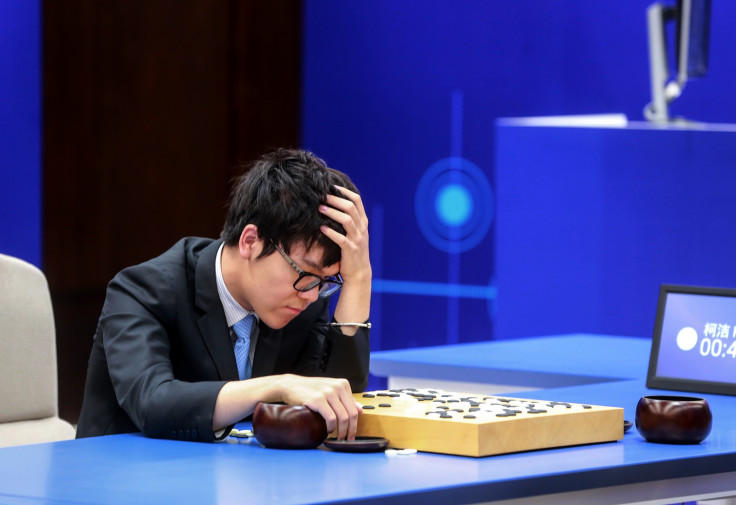Google DeepMind's AlphaGo is retiring after beating the world's best human Go players
'We hope that the story of AlphaGo is just the beginning,' DeepMind said.

Google DeepMind's artificial intelligence software AlphaGo is retiring from competitive matches after defeating the world's best human Go player this week. After beating 19-year-old Ke Jie for the third time to sweep a closely watched three-game series in Wuzchen, China, DeepMind announced on Saturday (27 May) that it would be AlphaGo's final match event.
The Future of Go Summit, which took place from 23 to 27 May, was organised in collaboration with the Chinese government and the China Go Association focusing on the complex, 3,000-year-old board game. Go is seen as a much more complex game than chess because it relies on a certain level of "human intuition".
"Over the last five days we have been honoured to witness games of the highest calibre," DeepMind's co-founder and CEO Demis Hassabis and research scientist David Silver wrote in a blog post. "We have always believed in the potential for AI to help society discover new knowledge and benefit from it, and AlphaGo has given us an early glimpse that this may indeed be possible.
"This week's series of thrilling games with the world's best players, in the country where Go originated, has been the highest possible pinnacle for AlphaGo as a competitive program. For that reason, the Future of Go Summit is our final match event with AlphaGo."
The London-based company said the research team behind AlphaGo will now "throw their energy into the next set of grand challenges".
These include "developing advanced general algorithms that could one day help scientists as they tackle some of our most complex problems, such as finding new cures for diseases, dramatically reducing energy consumption, or inventing revolutionary new materials."
"If AI systems prove they are able to unearth significant new knowledge and strategies in these domains too, the breakthroughs could be truly remarkable. We can't wait to see what comes next," DeepMind said.
The team plans to publish one final academic paper detailing the tweaks and improvements made to the algorithm's efficiency and its potential to be generalised to address various other problems.
"Just like our first AlphaGo paper, we hope that other developers will pick up the baton, and use these new advances to build their own set of strong Go programs," DeepMind said.
3/3 The #AlphaGo team will take on the next set of challenges to help scientists w/ society’s most complex problems https://t.co/ribkDaK60S
— Demis Hassabis (@demishassabis) May 27, 2017
The team will also work on a much-requested teaching tool that will show how AlphaGo analysed Go positions, offer developers insight into how the program thinks and give players "the opportunity to see the game through the lens of AlphaGo." Jie will collaborate with DeepMind on the tool.
Last year, AlphaGo created AI history after trouncing South Korean Go master Lee Sedol in a five-game series by 4-1. Earlier this year, AlphaGo secretly defeated several top ranked players online, including Jie, by playing under the name "Master" on two Chinese board game platforms, winning 50 out of 51 games.
"While AlphaGo is stepping back from competitive play, it's certainly not the end of our work with the Go community, to which we owe a huge debt of gratitude for their encouragement and motivation over the past few years," DeepMind said. "We hope that the story of AlphaGo is just the beginning."
© Copyright IBTimes 2025. All rights reserved.





















